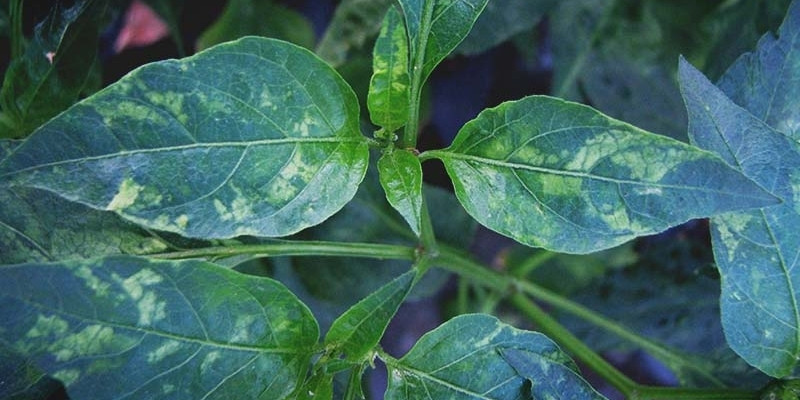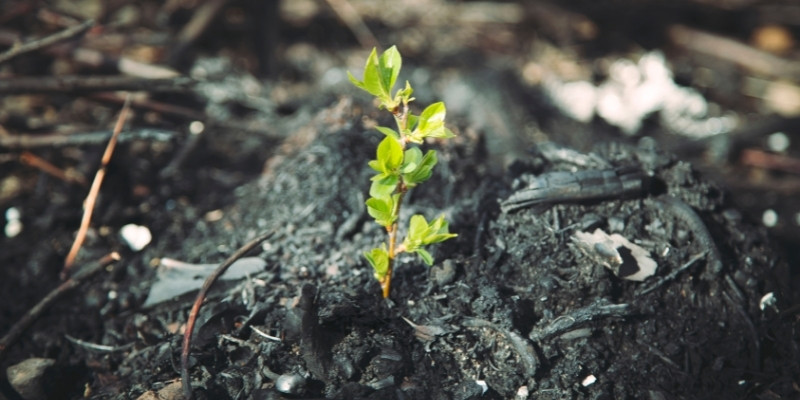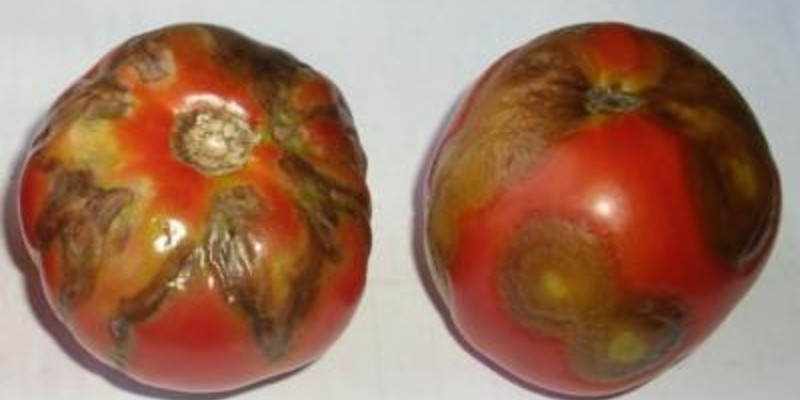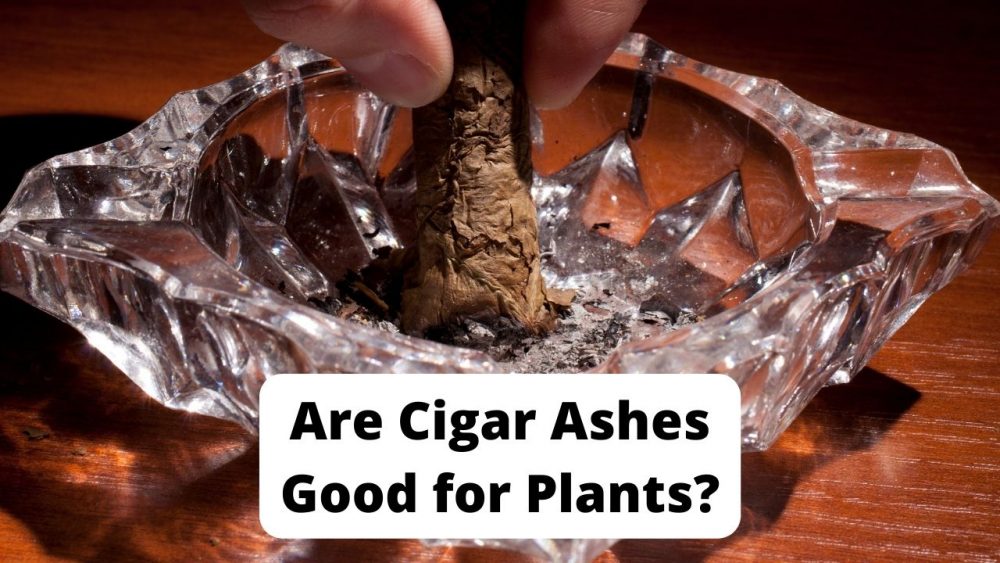 Key Takeaways
Key Takeaways
- Cigar ash composition: Cigar ash contains potassium, calcium, nicotine, and other harmful chemicals that can affect plant growth and health.
- Cigar ash risks: Cigar ash can cause Tobacco Mosaic Virus, a deadly disease that has no cure and can spread to other plants. Cigar ash can also alter the soil pH and create abiotic stress.
- Cigar ash alternatives: Wood ash from natural sources is a better option for plants that need more alkaline soil. Wood ash has more calcium, potassium, and phosphorus, and no nicotine or toxic residues.
- Cigar ash disposal: Cigar ash should be disposed of in a trash can or a separate bin after it cools down. Never use cigar ash on plants or in compost piles.
Are cigar ashes good for plants? Whether you’ve been tending a garden for years or have recently picked it up as a new hobby, you may have heard that after smoking a cigar, you can deposit the ashes into the soil of your plants to promote continued growth. Some use this method as a substitution for regular fertilizer, but are cigar ashes good for plants?
I grew up around nature and have tried, failed, and then succeeded in growing my inside garden. I have explored and tested the legends and theories on how to make our plants grow their healthiest.
You can trust me to be honest and upfront about the methods that can help and those that hurt your plant friends.
Read on to learn the truth about what happens when we use cigar ashes on our plants.
What Does Cigar Ash Consist Of?
Cigar ash contains potassium and small traces of calcium, which are essential nutrients that plants need to thrive. Potassium is a powerful part of fertilizers, so people may believe cigar ash can function as a substitute for standard plant fertilizer.
The amounts of potassium and calcium in cigar ash are scarce. It also contains nicotine, arsenic, butane, formaldehyde, and other residues that can be harmful to your plant.
Some cigar ash advocates argue that nicotine can be beneficial in its own right because it helps deter pests from your plant. It is unknown if the other chemicals found in cigar ash offer notable benefits.
Is Cigar Ash Good for Plants?
Cigar ash is not good for your plants and should never stand as a substitution for fertilizer. While trace amounts of potassium and calcium are necessary to encourage healthy plant growth, exposure to nicotine and other chemicals does more harm than good in the long run.

Even if the nicotine can somewhat prevent pest infestations, it still causes enough damage to the plant to overshadow that alleged benefit. In theory, some nicotine placed around the plant could help if it’s kept separate and can’t contaminate the soil.
How Can Cigar Ashes Be Beneficial to Plants?
Some people believe cigar ashes are good for plants because of the potassium and calcium present in the ash composition. While those nutrients are necessary for steady plant growth, the presence of nicotine and other substances offset these benefits.
If you were to smoke a cigar entirely, with no nicotine or tobacco content left behind, it could offer some benefits for the plant. However, this would be difficult to do.
Tobacco Mosaic Virus
Another reason you should avoid using cigar ashes on your plants is the high risk of Tobacco Mosaic Virus. TMV currently has no cure and can crop up on any plant exposed to an infected tobacco product.
Tobacco Mosaic Virus is a disease that can afflict your plant if you decide to fertilize it with cigar ashes. Not all tobacco products will have TMV, but it will be difficult to tell as the disease does not affect humans. You could smoke a whole cigar and never know whether it had TMV.

The worst part about TMV is that it is always too late to save your plant when you discover something is wrong. Unfortunately, it can also last for years, even in dried, dead leaves.
Tobacco Mosaic Virus originates from tobacco plants but can transfer to other plant species. Even if one of your plants dies from the virus, it can still spread to nearby plants.
If a plant contracts TMV, it will develop yellow and dark green mosaic patterns on its leaves. The leaves will be left deformed and scrunched, and you might also see yellow or green veins appear.
Aside from hurting your plant’s appearance, the Tobacco Mosaic Virus disrupts its natural photosynthesis cycle. Over time, the plant will be unable to provide sufficient food for itself, and eventually, it will starve to death.
Even after your plant dies, TMV can move on to another host. If you have multiple plants in the same vicinity, they are all susceptible to TMV, even if you only used cigar ashes on one plant. Since there currently is no effective treatment for TMV, you risk losing the whole lot if one of your plants gets an infection.
Aside from TMV, tobacco leaves often have cadmium, zinc, lead, and other soil chemicals, which transfer to your plants. Exposing your plants to these chemicals isn’t a good idea because you won’t be able to anticipate the potential effects.
Are Cigarette Ashes Good for Plants?
Cigarette ashes are very similar to cigar ashes and aren’t suitable for your plants as the presence of tobacco and nicotine can cause damage over time.
Even if you smoke a cigarette entirely, removing all of the nicotine and tobacco content, the ashes may not be safe for your plant. Without the ability to know for sure if cigarette ashes will cause harm, it’s highly discouraged to use them as fertilizer.
If you want to use ashes to treat your plants, stick to a natural source, such as wood ashes.
Cigar vs. Wood Ashes
Wood ashes are incredibly beneficial for your plants! They have a higher concentration of calcium and potassium deposits than cigar and cigarette ashes and also contain phosphorus. All three elements are essential for stimulating healthy plant growth.

Another massive bonus that wood ashes offer is the absence of nicotine. Without the presence of nicotine and other toxic chemicals, there’s no potential for TMV to develop.
Wood ashes are an excellent, natural way to help stimulate plant growth. They’re beneficial primarily because of their alkaline content, which can help balance the soil pH.
If you have plants that prefer higher alkaline content, dispersing wood ashes is a great solution as long as you’ve already measured the pH in the soil and have determined it needs more alkaline.
It’s important to note that wood ashes must only come from natural wood. Burning and applying ash made from treated wood can have unforeseen consequences and effects on your plants since you might not know all the chemicals used during the wood processing cycle.
Never treat your plants with any wood that is processed with chemicals that make it easier to burn or ash that has been treated with harsh chemicals, like lithium chloride, the chemical that produces all the colors in campfire flames.
Natural wood ashes are a much better choice than cigar or cigarette ashes because they lack harmful chemicals and have a heavy presence of calcium, potassium, and phosphorus.
How Cigar Ashes Affect Your House Plants
Cigar ashes do more harm than good for your house plants. The cigar ashes appear to have some benefits but far more potential dangers that can ultimately hurt the plant.
If you use cigar ashes on your plant, you might see TMV occur. The virus will cause discoloration and a general weakening of your plant’s photosynthesis cycle, leading it to starve to death. Cigar ash exposure also creates abiotic stress factors in the soil, which will cause your plant elevated stress.

Similar to wood ashes, cigar ashes can also alter the pH of the soil. This can be harmful if you don’t pay attention to which plants you disperse the ashes. Make sure you measure the pH of the soil before adding ashes to your plants to make sure additional alkaline treatment is warranted.
List of Plants That Benefit From Ashes
Plants that benefit from wood ash are those that enjoy soil with higher alkaline conditions. Some popular plants that enjoy the extra nutrients include:
- Roses
- Hydrangeas
- Lilacs
- Clematis
- Peas
- Brussels sprout
- Garlic
- Crocus
- Barberry
While many plants benefit from ashes that help maintain alkaline soils, you should never substitute wood ash with cigar ash. Always check the alkaline levels before attempting to apply any ashes to the soil.
Are Cigars Biodegradable?
Cigars are usually biodegradable as long as they aren’t made with any plastics. You should always throw cigars away after they’ve cooled. Attempting to add them to compost piles will only cause damage to the composting process and necessitate disposing of all contents in the compost.
You also won’t be able to recycle cigars. They must be properly disposed of in a trash can or separate receptacle.
What Do You Do With Cigar Ash?
Cigar ash should be disposed of after it’s cooled off. Many cigar smokers recommend having a separate disposal spot to avoid potential fires.
If a cigar burns entirely, these ashes might be safe as they should no longer contain any nicotine or other toxic chemicals. As mentioned earlier, it’s difficult to know for sure if all of the chemicals are successfully removed, so using the ashes on your plants isn’t suggested. Plus, the process of removing all of the chemicals from cigar ash is tedious.
To be on the safe side, properly dispose of cigar ash in a trash can or dedicated bin. Even with its rumored benefits, using cigar ash on your plants is not a risk worth taking.
I hope you enjoyed this article about the effect of cigar ash on plants. For more guides, check out:



Write a comment